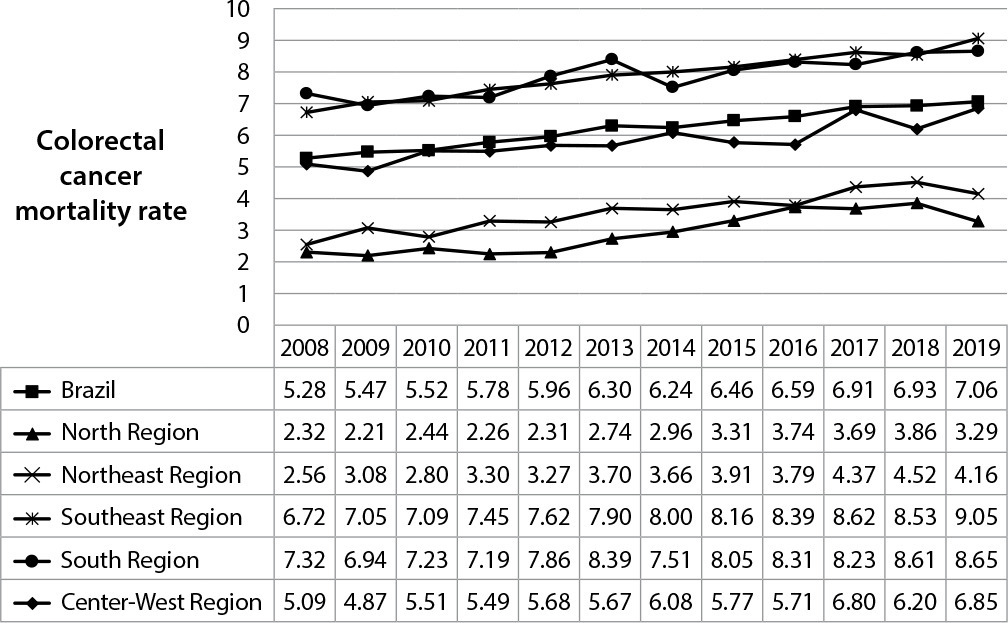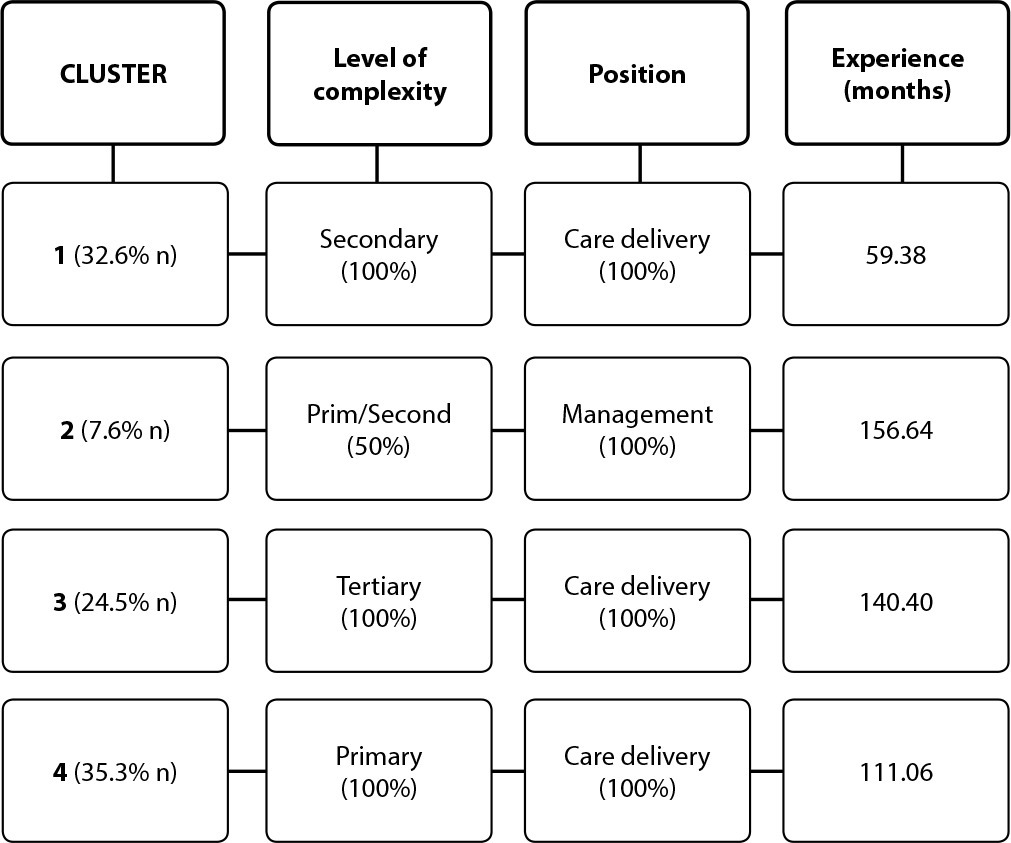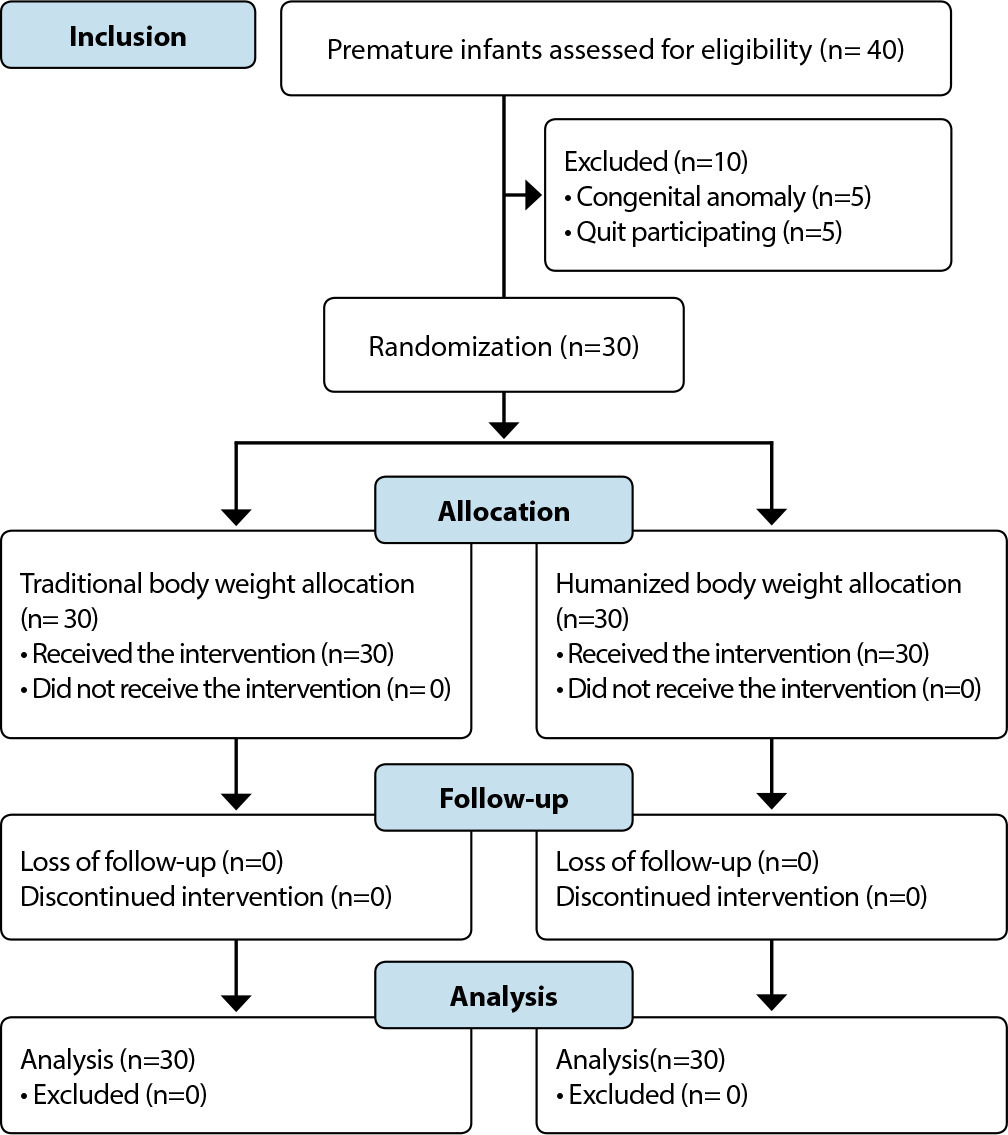-
ORIGINAL ARTICLE09-19-2022
Colorectal cancer mortality in women: trend analysis in Brazil and its regions and states
Revista Brasileira de Enfermagem. 2022;75(2):e20210751
Abstract
ORIGINAL ARTICLEColorectal cancer mortality in women: trend analysis in Brazil and its regions and states
Revista Brasileira de Enfermagem. 2022;75(2):e20210751
DOI 10.1590/0034-7167-2021-0751
Views0See moreABSTRACT
Objectives:
to analyze colorectal cancer mortality trends in women in Brazil and its regions and states.
Methods:
ecological, time-series study with trend analysis of deaths caused by colorectal cancer in women in Brazil and its regions and states between 2008 and 2019. Polynomial regression was used to treat the data.
Results:
48,225 deaths of women caused by colorectal cancer were examined. There was an increasing mortality trend in Brazilian women, with regional differences that resulted from socioeconomic, political, and cultural inequalities. The South Region stood out with the highest rate (7.32) in 2008, which increased to 8.65 in 2019, followed by the Southeast Region, whose rates were 6.72 and 9.05 in 2008 and 2019, respectively.
Conclusions:
colorectal cancer mortality increased, which indicates the need to expand public policies oriented toward screening and early diagnosis of colorectal cancer in women.

-
REVIEW09-19-2022
Authentic leadership in the educational system and in nursing education: an integrative review
Revista Brasileira de Enfermagem. 2022;75(1):e20220122
Abstract
REVIEWAuthentic leadership in the educational system and in nursing education: an integrative review
Revista Brasileira de Enfermagem. 2022;75(1):e20220122
DOI 10.1590/0034-7167-2022-0122
Views0See moreABSTRACT
Objectives:
to identify and analyze the knowledge produced in literature about authentic leadership in the educational system, as well as in nursing education.
Methods:
an integrative review, carried out in the Scopus, Web of Science, CINAHL, MEDLINE/PubMed, ERIC, LILACS databases. Articles that addressed authentic leadership in the educational system from a general perspective and within the nursing scope, as well as teaching practices of this leadership model, were eligible.
Results:
twenty-three articles met the inclusion criteria, most published in 2019, highlighting studies in the context of teaching, with a predominance in the nursing course and which were synthesized into three thematic categories.
Final Considerations:
it was found that the higher the levels of authentic leadership in the educational system, the higher the rates of other positive factors related to it, such as trust, involvement, academic optimism, responsibility, creativity, among others.

-
ORIGINAL ARTICLE09-19-2022
ICNP® nursing diagnoses for clinical practice in spinal cord injury rehabilitation
Revista Brasileira de Enfermagem. 2022;75(1):e20210670
Abstract
ORIGINAL ARTICLEICNP® nursing diagnoses for clinical practice in spinal cord injury rehabilitation
Revista Brasileira de Enfermagem. 2022;75(1):e20210670
DOI 10.1590/0034-7167-2021-0670
Views0See moreABSTRACT
Objectives:
to construct statements of nursing diagnoses for the clinical practice of rehabilitation of people with spinal cord injury using the International Classification for Nursing Practice (ICNP®) and Orem’s theory of self-care.
Methods:
methodological study developed in four steps: identification of relevant terms to clinical nursing practice in the rehabilitation of people with spinal cord injury; mapping of selected terms with ICNP® terms; construction of nursing diagnoses statements; mapping of statements constructed with pre-coordinated concepts of the ICNP®.
Results:
241 statements of nursing diagnoses were constructed and categorized according to the self-care requisites of the theory. The most prevalent statements were those related to universal requisites, followed by developmental requisites and health deviation requisites.
Conclusions:
the constructed nursing diagnoses reflect the complexity of phenomena evidenced in the clinical practice of rehabilitation, allowing a systematic and comprehensive care to the person with spinal cord injury.
-
ORIGINAL ARTICLE09-19-2022
Clustering the engagement of Brazilian nurses in political advocacy
Revista Brasileira de Enfermagem. 2022;75(1):e20210105
Abstract
ORIGINAL ARTICLEClustering the engagement of Brazilian nurses in political advocacy
Revista Brasileira de Enfermagem. 2022;75(1):e20210105
DOI 10.1590/0034-7167-2021-0105
Views0See moreABSTRACT
Objectives:
to analyze the level of nurses’ engagement in political advocacy by performing cluster analysis.
Methods:
observational study, with a quantitative approach. A total of 184 nurses working in primary, secondary, and tertiary care in a city in the south of Brazil completed the Policy Advocacy Engagement Scale. Data analysis consisted of descriptive statistics, cluster analysis, analysis of variance, and chi. The Institutional Review Board approved the study.
Results:
four differentiated clusters were found according to professional experience, level of healthcare complexity, and unit. The cluster analysis revealed that patient advocacy for community-based obtained the highest mean, indicating that political advocacy is effective in organizational environments and that professional qualification favors greater engagement in political advocacy.
Conclusions:
the results reveal that nurses play an active role in political advocacy, seeking to promote positive changes in health, especially those working in tertiary care, the nurse group that obtained the highest means.

-
ORIGINAL ARTICLE09-19-2022
The experience of trans or transvestite women in accessing public health services
Revista Brasileira de Enfermagem. 2022;75:e20210713
Abstract
ORIGINAL ARTICLEThe experience of trans or transvestite women in accessing public health services
Revista Brasileira de Enfermagem. 2022;75:e20210713
DOI 10.1590/0034-7167-2021-0713
Views0See moreABSTRACT
Objective:
to understand the meanings of being a trans or transvestite woman in the care provided by Unified Health System health professionals.
Methods:
qualitative research, guided by Heidegger’s phenomenology, with 10 trans or transvestitewomen residing and using the Unified Health System in a municipality in Minas Gerais. Fieldwork was carried out by interviews.
Results:
trans or transvestitewomen reproduce the social patterns constructed and accepted by the female, with the search for hormonization being common, and, when it is difficult to obtain a prescription, they resort to self-medication. Social name use and acceptance by health professionals promote recognition. Trans or transvestitewomen experience prejudice on a daily basis, not only by professionals, but also because of the assumption of diagnoses by other users.
Final considerations:
transphobia promotes withdrawal from health services, due to fear, shame, knowledge about professionals’ unpreparedness, triggering illness, social exclusion and violence.
-
ORIGINAL ARTICLE09-19-2022
Neurobehavioral signals in preterm infants in body weight check: a quasi-experimental study
Revista Brasileira de Enfermagem. 2022;75:e20210584
Abstract
ORIGINAL ARTICLENeurobehavioral signals in preterm infants in body weight check: a quasi-experimental study
Revista Brasileira de Enfermagem. 2022;75:e20210584
DOI 10.1590/0034-7167-2021-0584
Views0See moreABSTRACT
Objective:
to describe and compare the frequency of neurobehavioral signs in preterm infants in traditional and humanized body weight check.
Methods:
a quantitative, quasi-experimental, cross-over study, carried out in a Neonatal Unit at a university hospital with a sample of 30 preterm newborns, randomly assigned and allocated in control group (traditional) and intervention group (humanized), with collection of general data, vital signs before and after procedures and footage.
Results:
there was a higher frequency of approach signs in humanized weight check compared to traditional check. Moreover, withdrawal signs were more frequent in traditional weight check compared to humanized check.
Conclusion:
in this regard, humanized body weight check provided greater benefits to preterm infants, making it necessary to foster discussions about humanization of care, so that this practice can be performed routinely in health units.

-
ORIGINAL ARTICLE09-19-2022
Implications of health conditions on rural soybean workers’ quality of life
Revista Brasileira de Enfermagem. 2022;75:e20210983
Abstract
ORIGINAL ARTICLEImplications of health conditions on rural soybean workers’ quality of life
Revista Brasileira de Enfermagem. 2022;75:e20210983
DOI 10.1590/0034-7167-2021-0983
Views0See moreABSTRACT
Objective:
to analyze the implications of health conditions on rural workers’ quality of life in the context of soybean production.
Method:
a cross-sectional study, with an intentional sample of 299 male rural workers. Data collection took place between October and December 2019. The following instruments were used: World Health Organization Quality Life-bref; Rural Workers’ Living & Health Conditions questionnaire; International Physical Activity Questionnaire; Cut down, Annoyed, Guilty, and Eye-opener. They were analyzed via descriptive and inferential statistics, using bivariate (Mann-Whitney; Kruskal-Wallis) and multivariate tests (generalized additive models for location, scale and shape).
Results:
the presence of a diagnosis of morbidity, alcohol dependence, occupational accidents and absenteeism implied a decrease in workers’ quality of life scores.
Conclusion:
the existence of unfavorable health conditions has a negative impact on rural soybean workers’ quality of life.
-
ORIGINAL ARTICLE09-19-2022
Terminological relationships between nursing diagnoses for children with kidney diseases
Revista Brasileira de Enfermagem. 2022;75:e20210841
Abstract
ORIGINAL ARTICLETerminological relationships between nursing diagnoses for children with kidney diseases
Revista Brasileira de Enfermagem. 2022;75:e20210841
DOI 10.1590/0034-7167-2021-0841
Views0See moreABSTRACT
Objective:
To identify the relationships between the statements of nursing diagnoses for children with kidney diseases prepared according to the International Classification for Nursing Practice (ICNP®) with the diagnoses of NANDA International (NANDA-I).
Methods:
Methodological study operationalized by the steps: 1) Survey of clinical findings through interviews and physical examination with children; 2) Elaboration of nursing diagnoses through Gordon’s clinical judgment; 3) Cross-mapping of diagnostic statements between the NANDA-I and ICNP® classification systems; 4) Content validation using the Delphi technique, in two rounds, with specialist nurses.
Results:
90 children participated. A total of 151 diagnoses were made, of which 66.3% (n=100) used ICNP® terminology and 33.7% (n=51) used NANDA-I; 55 diagnoses showed equivalence of meanings.
Conclusions:
Cross-mapping of diagnoses was achieved starting from the reality of children, using clinical reasoning and validation by specialist nurses.
-
ORIGINAL ARTICLE05-15-2020
Stress and quality of sleep in undergraduate nursing students
Revista Brasileira de Enfermagem. 2020;73:e20180227
Abstract
ORIGINAL ARTICLEStress and quality of sleep in undergraduate nursing students
Revista Brasileira de Enfermagem. 2020;73:e20180227
DOI 10.1590/0034-7167-2018-0227
Views0See moreABSTRACT
Objective:
to analyze the level of stress and sleep quality in nursing students according to terms of the nursing program.
Method:
descriptive and cross-sectional research developed in a higher education institution in Northeastern Brazil on 167 students. We used data collection, sociodemographic information, and a scale for assessing stress and sleep quality in nursing students.
Results:
we identified a statistically significant difference between domains of the stress scale and the terms of the undergraduate program, and between the quality of sleep and such terms such as as in the fourth and sixth semesters.
Conclusion:
different stress scores show that the semester which concerns students the most is the fifth. Quality of sleep was deemed good for the first, third, fifth, seventh, and eighth semesters; and poor for the fourth and sixth terms.
-
ORIGINAL ARTICLE09-21-2020
Clinical judgment and diagnostic reasoning of nursing students in clinical simulation
Revista Brasileira de Enfermagem. 2020;73(6):e20180878
Abstract
ORIGINAL ARTICLEClinical judgment and diagnostic reasoning of nursing students in clinical simulation
Revista Brasileira de Enfermagem. 2020;73(6):e20180878
DOI 10.1590/0034-7167-2018-0878
Views0See moreABSTRACT
Objectives:
to determine the degree of association between clinical judgment and diagnostic reasoning of nursing students in clinical simulation.
Methods:
this is a correlational research design using a quantitative approach. The sample consisted of 41 nursing students who assisted a patient with vaso-occlusive crisis in a high-fidelity clinical simulation setting. The instruments used included the Lasater Clinical Judgment Rubric – Brazilian Version and the Diagnostic Thinking Inventory.
Results:
clinical judgment was associated with diagnostic reasoning (r=0.313; p=0.046), as well as the “noticing” aspect of clinical judgment with diagnostic reasoning (r=0.312; p=0.047).
Conclusions:
the results show that skills to interpret patient data are associated with diagnostic reasoning skills. Teaching clinical judgment skills is necessary to develop the diagnostic reasoning of nursing students.
-
ORIGINAL ARTICLE12-05-2019
Quality of life of institutionalized aged with and without symptoms of depression
Revista Brasileira de Enfermagem. 2019;72:127-133
Abstract
ORIGINAL ARTICLEQuality of life of institutionalized aged with and without symptoms of depression
Revista Brasileira de Enfermagem. 2019;72:127-133
DOI 10.1590/0034-7167-2018-0316
Views0See moreABSTRACT
Objective:
compare the quality of life (QOL) of aged residents in homes for aged people with or without symptoms of depression, and identify social, physical activity; leisure; health and basic activities of daily living (ADL) variables that correlate with QOL scores.
Method:
cross-sectional study conducted with 101 institutionalized aged. Multiple linear regression was used for data analysis.
Results:
symptoms of depression changed negatively the QOL in the domains: autonomy; present, past and future activities; social participation; intimacy and total score. Dependent aged presented lower QOL for the performance of ADL in the domains: autonomy; social participation and total score; dancing without limitation of movement; liking the residential and not presenting symptoms of depression were the variables that positively influenced the QOL of the aged.
Conclusion:
social and psychological support, good living conditions and stimulating assistance can improve the QOL of institutionalized elderlies.
-
ORIGINAL ARTICLE07-08-2020
Spirituality and religiousity in the experience of suffering, guilt, and death of the elderly with cancer
Revista Brasileira de Enfermagem. 2020;73:e20190034
Abstract
ORIGINAL ARTICLESpirituality and religiousity in the experience of suffering, guilt, and death of the elderly with cancer
Revista Brasileira de Enfermagem. 2020;73:e20190034
DOI 10.1590/0034-7167-2019-0034
Views0See moreABSTRACT
Objective:
to understand spirituality and religiosity in the experience of suffering, guilt, and death of the elderly with cancer.
Method:
qualitative research based on Viktor Frankl’s Existential Analysis. Twenty phenomenological interviews were conducted with people over 60 years old undergoing chemotherapy treatment at an oncology unit of a hospital in the city of Salvador, Bahia State, Brazil, between August and October 2018.
Results:
the following categories emerged: Experiences spirituality and religiosity in the face of the tragic triad and existential emptiness; Uses spirituality/religiosity as resilience strategies. After apprehension of ontic aspects, it was possible the ontological understanding of spirituality and religiosity in the face of suffering, guilt, and death experienced in the elderly with cancer’s daily life.
Final considerations:
spirituality and religiosity were understood as coping strategies used in the unstable experience of the elderly with cancer, providing comfort and resilience.
-
ORIGINAL ARTICLE02-10-2020
Mental health profile of the elderly community: a cross-sectional study
Revista Brasileira de Enfermagem. 2020;73(1):e20180191
Abstract
ORIGINAL ARTICLEMental health profile of the elderly community: a cross-sectional study
Revista Brasileira de Enfermagem. 2020;73(1):e20180191
DOI 10.1590/0034-7167-2018-0191
Views0See moreABSTRACT
Objective:
to describe the mental health profile of the elderly registered in a Family Health Unit in the city of Recife, Pernambuco State.
Method:
it was a descriptive quantitative study, conducted with 159 elderly through the scales Geriatric Depression, Resilience, Social Support, Life Satisfaction, and Positive and Negative Affects, Mini-Mental State Examination, Stressful Events Inventory and Brazil Old Age Shedule.
Results:
females, young and literate elderly predominated. Most were satisfied with life, 52.2% without depressive symptoms, 68.6% without cognitive impairment, 67.9% high resilience and 95.8% high social support, but 62% of elderly with depressive symptoms showed cognitive deficit. Negative correlation was identified between depression and cognitive impairment, resilience, social support and life satisfaction.
Conclusion:
assessment of these indicators identifies triggers of psychological distress, assisting the nursing staff in the development of preventive and care actions.
-
EXPERIENCE REPORT10-26-2020
Collaborative practices from health care teams to face the covid-19 pandemic
Revista Brasileira de Enfermagem. 2020;73:e20200470
Abstract
EXPERIENCE REPORTCollaborative practices from health care teams to face the covid-19 pandemic
Revista Brasileira de Enfermagem. 2020;73:e20200470
DOI 10.1590/0034-7167-2020-0470
Views0See moreABSTRACT
Objective:
To report the experience of collaborative practices facing the COVID-19 pandemic.
Methods:
This is a report about the experience of collaborative practices conducted by health care teams in emergency service in the Emergency Care Units facing of COVID-19 pandemic in the city of Fortaleza, State of Ceará, in the first semester of 2020.
Results:
Collaborative actions, cooperation and effective communication among nursing and medical team contribute to the management of mild and complex cases of COVID-19, as well as qualify them in suitable and necessary care and confrontation measures.
Final considerations:
The report shows the need for collaborative practices to minimize negative effects on the population in the face of the new coronavirus pandemic.

-
ORIGINAL ARTICLE11-25-2020
Family experiences in discovering Autism Spectrum Disorder: implications for family nursing
Revista Brasileira de Enfermagem. 2020;73:e20190489
Abstract
ORIGINAL ARTICLEFamily experiences in discovering Autism Spectrum Disorder: implications for family nursing
Revista Brasileira de Enfermagem. 2020;73:e20190489
DOI 10.1590/0034-7167-2019-0489
Views0See moreabstract
Objectives:
to describe the family’s experience in the process of discovering the diagnosis and initiation of treatment of children with Autism Spectrum Disorder.
Methods:
this qualitative and descriptive study interviewed nine relatives of eight children on autism spectrum. They were inserted in health services, public education, and Association of Parents and Friends of The Exceptional of cities in the countryside of the Center-West. Data were collected through open interviews from July to September 2017. Data was submitted to thematic analysis.
Results:
at the beginning, the family was difficult to perceive the first atypical signs presented by the children. Families experience situations of vulnerability, since support networks are insufficient. The school played a significant role in recognizing unexpected behaviors.
Final Considerations:
support, offered by nurses, health professionals, school and social support devices, is important to family and children in this trajectory.
-
ORIGINAL ARTICLE10-21-2019
Nurses defending the autonomy of the elderly at the end of life
Revista Brasileira de Enfermagem. 2019;72(6):1639-1645
Abstract
ORIGINAL ARTICLENurses defending the autonomy of the elderly at the end of life
Revista Brasileira de Enfermagem. 2019;72(6):1639-1645
DOI 10.1590/0034-7167-2018-0768
Views1See moreABSTRACT
Objective:
to understand how nurses deal with the elderly’s autonomy at the end of life.
Method:
qualitative, exploratory study, guided by the Grounded Theory. Ten nurses, eight doctors and 15 nursing technicians were interviewed between November 2016 and May 2017 at a university hospital in Rio de Janeiro/Brazil.
Results:
nurses deal with the elderly’s autonomy in compliance with the code of ethics and exercise leadership in actions and interactions to defend this right, evaluating, guiding and listening to the preferences of the elderly; interacting with the family; and sharing information with the health team.
Final considerations:
the elderly’s autonomy must be ensured in care planning, based on patient-centered communication and developed in the interaction among agents involved in care. The discussion on “Living Wills” Health Care Directives and principles of palliative care must be encouraged.
Search
Search in:
Nuvem de Tags
Adolescente (85) Atenção Primária à Saúde (239) COVID-19 (91) Criança (91) Cuidados de Enfermagem (269) Educação em Enfermagem (151) Educação em Saúde (139) Enfermagem (930) Enfermagem Pediátrica (86) Estudantes de Enfermagem (77) Estudos de Validação (131) Família (87) Idoso (208) Promoção da Saúde (99) Qualidade de Vida (104) Saúde do Trabalhador (86) Saúde Mental (145) Saúde Pública (82) Segurança do Paciente (150) Tecnologia Educacional (100)



